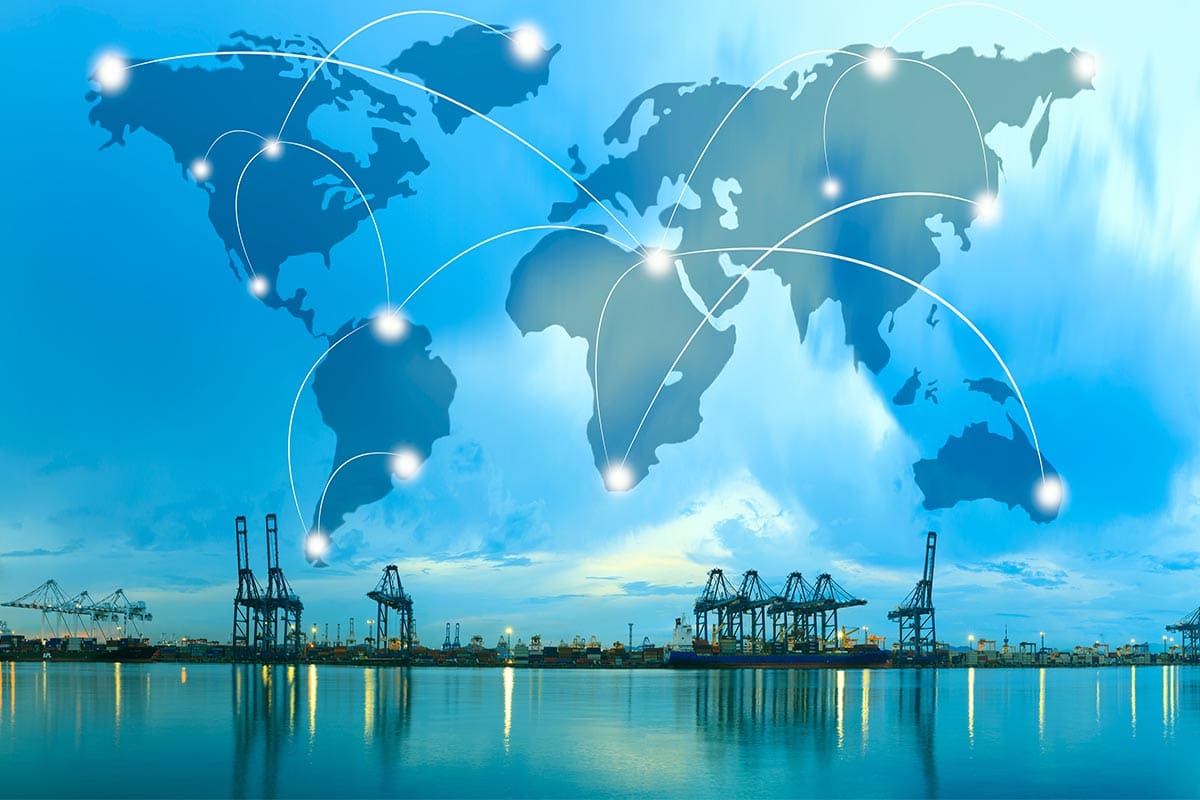The EU Global Gateway Strategy opened new opportunities to low and middle-income countries for realizing their hard and soft infrastructure projects more by obtaining a more sustainable, transparent, and partnership-approached financial resource. The recipient countries themselves will judge whether the EU’s Strategy (with a transatlantic reinforcement – BBBW Initiative) will be able to hinder the expansion of China’s sphere of influence, or whether it is only a “too little too late” project of the lagging West.
The last month of 2021 has started strongly for the EU: an ambitious €300 billion infrastructure investment programme ‘Global Gateway Strategy’ was launched, offering its partners ‘a response to the urgent needs to develop sustainable and high quality digital, climate and energy and transport infrastructures and strengthen health, education and research systems across the world, taking into account their needs and the EU’s own interests.’[1]
The wording of the project is quite interesting, as it—in terms of its keywords—indirectly refers with criticisms to the Beijing-led Belt and Road Initiative (BRI), the flagship of Bejing’s geopolitical aspirations. Expressions like ‘high standards, good governance, transparency, financial sustainability’[2] obviously reflect EU complaints about shortcomings and occasional dangers of BRI. The main concern toward the BRI methods is that participants can easily find themselves in economic dependence on Beijing caused by a “debt trap”,[3]meaning taking unsustainable loans from China, like in the controversial case of Hambantota port (Sri Lanka).[1]Besides, transparency concerns are often come up as an argumentation against Beijing’s initiative, claiming that the contracts may contain extensive confidential clauses (unilaterally beneficial to the creditor), even sometimes requiring the denial of the existence of the contract itself.[4]
In this sense, the ‘Global Gateway’ clearly offers a European alternative to Beijing’s initiative in an updated form, supporting post-pandemic economic recovery in line with COP 26 sustainability criteria, focusing on environmentally conscious projects mainly in the health, digital, renewable energy sectors. However, the BRI itself has undergone a significant transformation since its launch in 2013, shifting from infrastructural improvements to meet China’s hydrocarbon demand and development of transport infrastructure to sustainability (green energy projects)[5] and digitalization.[6]
The importance of the EU Global Gateway Strategy reflects the biggest possibility in offering an alternative to Eastern capital
The EU Strategy compares itself to China’s global measures not by hostile attitude but through its assertive argumentation, providing ‘democratic values and high standards, good governance and transparency, equal partnerships, green and clean, secure infrastructures’. Certainly, an elegant method of reasoning from the EU’s point of view, however, winning the fight only at the level of words is more of a loss than a victory. The Strategy has been criticized for lacking in practical strength, also for arriving „too little too late”, whereas it is almost eight years behind the Eastern Initiative (announced in 2013) and has a more modest financial framework than the BRI budget (which could double to $1.2–1.3 trillion by 2027).[7] On top of that, the Global Gateway’s financial portfolio is not made up by new capital raising, as its budget is rather a mix of already existing resolutions, loan guarantees, and hope of public and private sector investments.[8]
It is a matter of perspective, whether we consider the intention of the Global Gateway Strategy as competition or complementation to the BRI.[9] However, as the EU’s newly announced investment booster strategy connects with the US’s initiative also supporting low and middle income countries’ infrastructural needs called ‘Build Back Better World’ (BBBW), an another EU–US versus China block formation was established now in field of an infrastructural investment initiative. This time, the decision is in the hands of the recipient countries, which now have the opportunity to choose between the Western and Eastern investment boosting models by comparing ideological, financial, and geostrategic considerations.
[1] EUROPEAN COMMISSION, ‘Questions and Answers on Global Gateway’, 01.12.2021.,https://ec.europa.eu/commission/presscorner/detail/en/qanda_21_6434, accessed 09. Dec. 2021
[2] EUROPEAN COMMISSION, ‘Global Gateway: up to €300 billion for the European Union’s strategy to boost sustainable links around the world’, https://ec.europa.eu/commission/presscorner/detail/en/ip_21_6433, accessed 09. Dec. 2021
[3] ‘Remarks by Vice President Pence on the Administration’s Policy Toward China’, The Hudson Institute, 04.10.2018.,https://trumpwhitehouse.archives.gov/briefings-statements/remarks-vice-president-pence-administrations-policy-toward-china/, accessed 09. Dec. 2021
[4] Christie Pladson, ‘China’s secret loans to developing nations pose problems, study finds’, DW.com, 31.03.2021.,https://www.dw.com/en/chinas-secret-loans-to-developing-nations-pose-problems-study-finds/a-57066390 , accessed 09.Dec.2021
[5] Ralph Jenning, ‘China Hits Reset on Belt and Road Initiative’, VOA News, 30.10.2021., https://www.voanews.com/a/china-hits-reset-on-belt-and-road-initiative/6290954.html, accessed 09. Dec.2021
[6] Dennis Pamlin, ‘Belt and Road Initiative’s ‘new vision’, China Daily Europe, 26.11.2017., https://www.chinadaily.com.cn/world/2017-11/26/content_35017323.htm, accessed 09.Dec. 2021
[7] ‘Inside China’s Plan to create a modern Silk Road’, Morgan Stanley, 14.03.2018., https://www.morganstanley.com/ideas/china-belt-and-road, accessed 09. Dec. 2021
[8] „Why bullshit rules in Brussels.” In: The Economist, 01.12.2021., https://www.economist.com/europe/why-bullshit-rules-in-brussels/21806565 (09.12.2021)
[9] Fredrick Kliem, ‘Europe’s Global Gateway: Complementing or Competing With BRI?’ The Diplomat, 07.12.2021., https://thediplomat.com/2021/12/europes-global-gateway-complementing-or-competing-with-bri/, accessed 09. Dec. 2021








